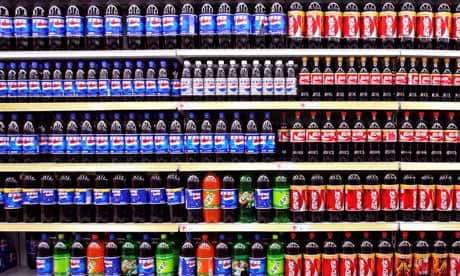Consuming just two sugary drinks a day can dull the taste buds and lead to cravings for high-calorie food, a study claims.
The research suggests that within a month those who drink sugary beverages are left with a dulled sensitivity to sweet tastes. This leads to an increased preference for high-calorie and sugar-laden foods, creating a "vicious cycle" as consumers look for their next treat.
Those who do not have a sweet tooth are particularly at risk of developing one after drinking sugary beverages, even if they are slim and active.
Experts who carried out the research at the universities of Bristol and Bangor expressed surprise at how quickly tastes could be dulled by exposure to sweet drinks. Lucy Donaldson, of the University of Bristol, said: "We have known for some time that the way we perceive different tastes can change under different circumstances. Finding that two sweet drinks a day over a short time can dramatically change taste was a real surprise."
In the trial lean and obese people rated their perception and enjoyment of sweet and salty tastes. The obese participants tended to rate identical drinks as less sweet than the lean ones did.
The experts then recruited only lean people who did not usually consume sugary drinks. Their sensitivity to sweet drinks was tested and they were asked to consume a sugary drink twice a day. A month later, when they were re-tested, their sensitivity to sweet tastes and conscious enjoyment of them had dulled.
Dr Hans-Peter Kubis, of the University of Bangor, said the dulling of tastebuds can lead to a "vicious cycle" as consumers of sugary drinks tend to more sweet and calorie-laden food to compensate.
He said: "This has serious implications for public health. This research shows how little sweet food stuffs are required to actually change your taste perceptions, and how powerful sweet-tasting products are.
"We are heading for a health disaster with rising obesity levels and the increasing incidence of type 2 diabetes. From our research it is clear to see how this situation may have created a cycle of sweet food and drink consumption. As taste satisfaction levels drop; the more sweet foods are consumed, contributing to these problems."
